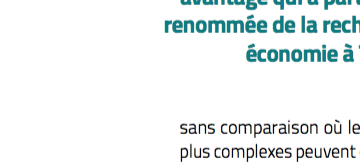Interview with Doh-Shin Jeon on Digital Economy.
Doh-Shin Jeon is a TSE-UTC professor specialized in industrial organisation. He works on digital economy issues such as antitrust policies for new technologies, two-sided platforms, media, net neutrality, etc. In 2016, he received the prestigious Maekyung-KAEA Award. Here’s his take on the recent Google-Android case under investigation by the European Commission.
In 2016, the European commission accused Google of abusing its dominant position by forcing smartphone makers to pre-install its applications on Android devices in an all-or-nothing manner. Whether such practice constitutes abuse of dominance is an interesting question we try to answer, with my co-author Jay Pil Choi (Michigan State University), in a working paper entitled “A Leverage Theory of Tying in Two-sided Markets”.
The leverage theory of tying addresses whether a firm which has a monopoly power in one market has an incentive to leverage this power to another market by tying the monopolized good with another good facing competition. In this case, the Commission argues that Google holds near-monopolies in markets such as licensed smartphone operating systems and distribution of apps for the Android platform. It accuses Google of bundling, or “tying”, its products to extend its monopolies to other markets including Internet search market in which it competes with other products such as Microsoft’s Bing.
The existing literature on the leverage theory of tying developed the “single monopoly profit theorem”. This theorem argues that when the monopoly’s competing product is inferior to the rival’s product, a company has no incentive to tie its product to extend its monopoly power. The reason is that without tying, its unique source of revenue is the monopoly profit and that if the company forces consumers to buy its inferior product (by tying both products), it has to use part of its monopoly profit to compensate consumers, which ends up reducing its overall profit.
However, this theorem does not take into account specificities of two-sided markets. Namely, when it comes to products like Google’s applications, prices are zero on the consumer side while Google makes profit from the other side such as advertising.
In a classic market, companies could be tempted to subsidise consumers to use their search engine. Such a strategy would prove counterproductive in this case since advertisers only pay money to reach consumers who do real search. Our research shows that when prices on the consumer side cannot be negative, in a two-sided market, the single monopoly profit theorem is invalid and tying becomes profitable. Tying allows the firm to attract consumers of the tied good market and thereby to obtain the profit from the advertising side of the same market. Contrary to what happens in a one-sided market, tying does not invite aggressive response of the rival as the lowest price it can charge is zero.
In the context of the Google-Android case, our theory implies that should Bing be superior in quality to Google Search (or become superior in the future), the current bundling of Google Search with Android OS and Play Store prevents Bing from using any qualitative advantage to gain users. Google’s advantage is also reinforced by the fact that the use of a search engine makes it better, as its creators can harvest more data to build better algorithms.
New technologies offer fascinating research opportunities for economists and I’m excited to be working on other issues linked to the digital revolution. In the future, I’m planning to analyse the economic challenges of artificial intelligence and of the Internet of Things.




